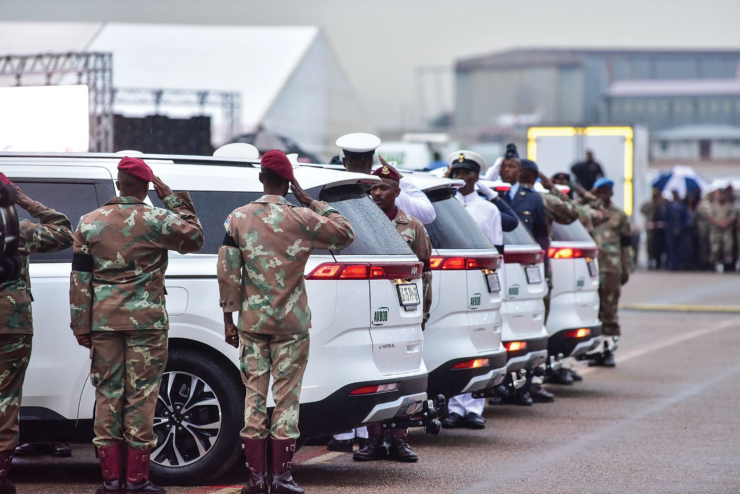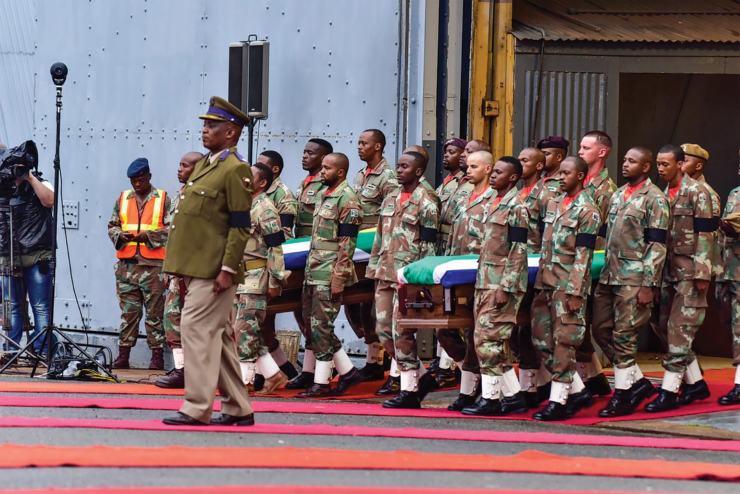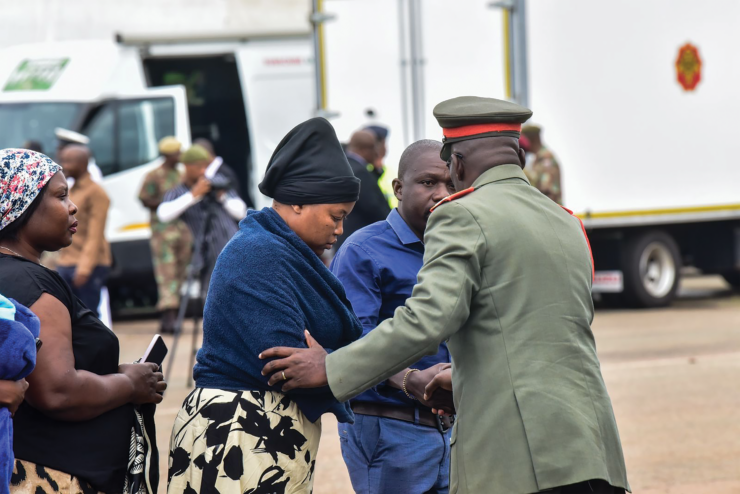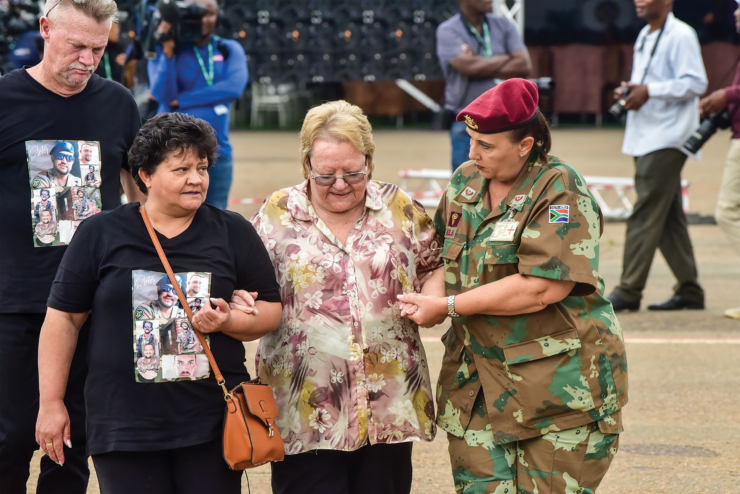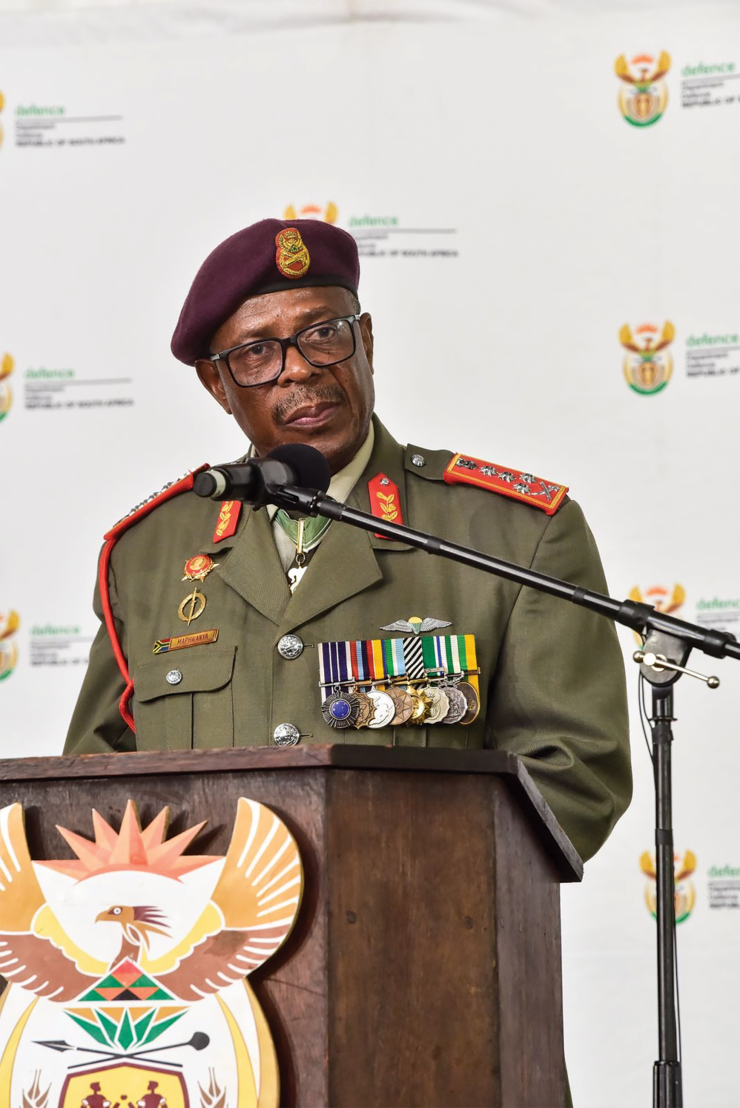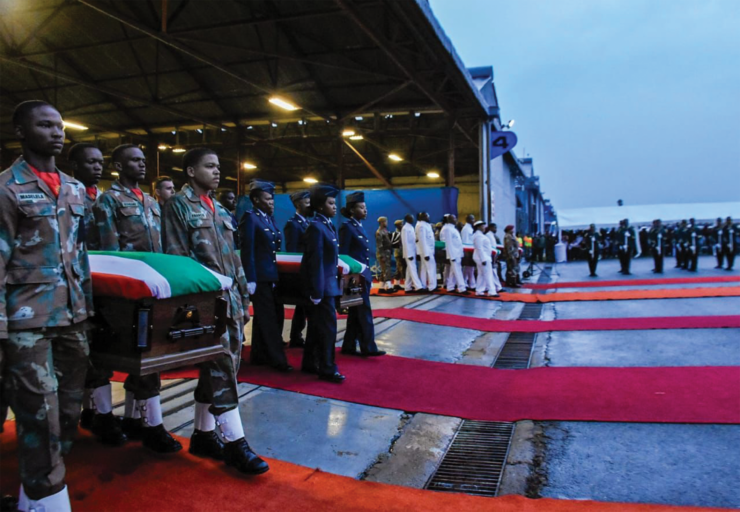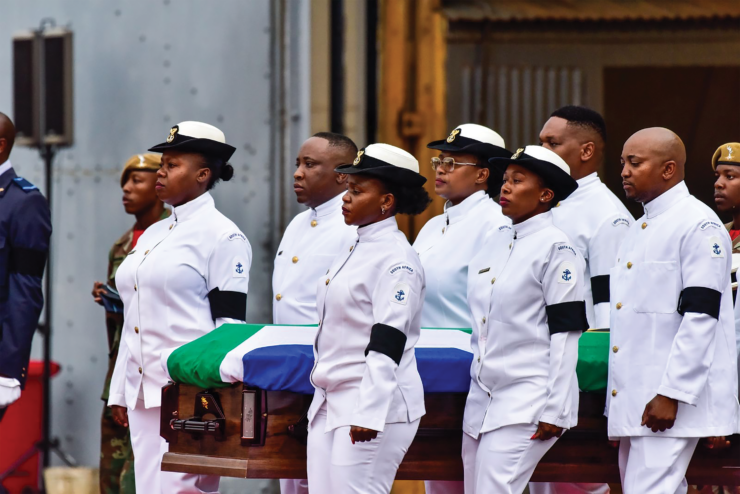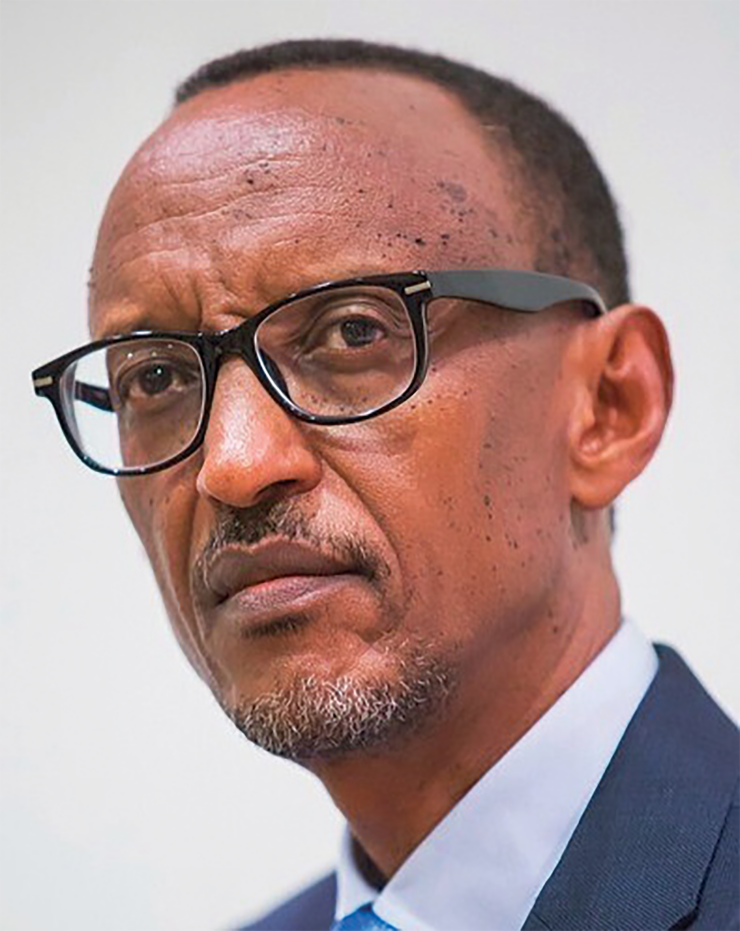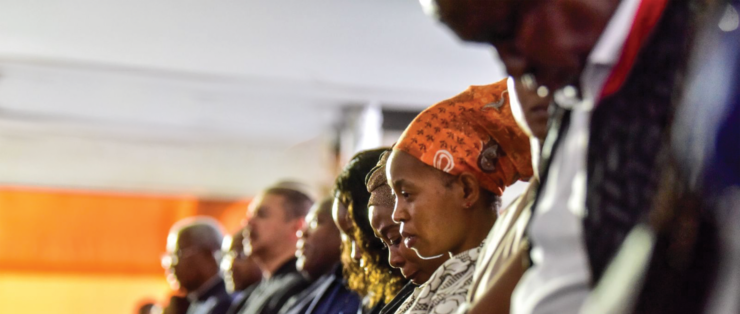HOSTILITIES: UN secretary-general Antonio Guterres to join seven Southern and Eastern African heads of states at the DR Congo peace indaba…
By WSAM Reporters
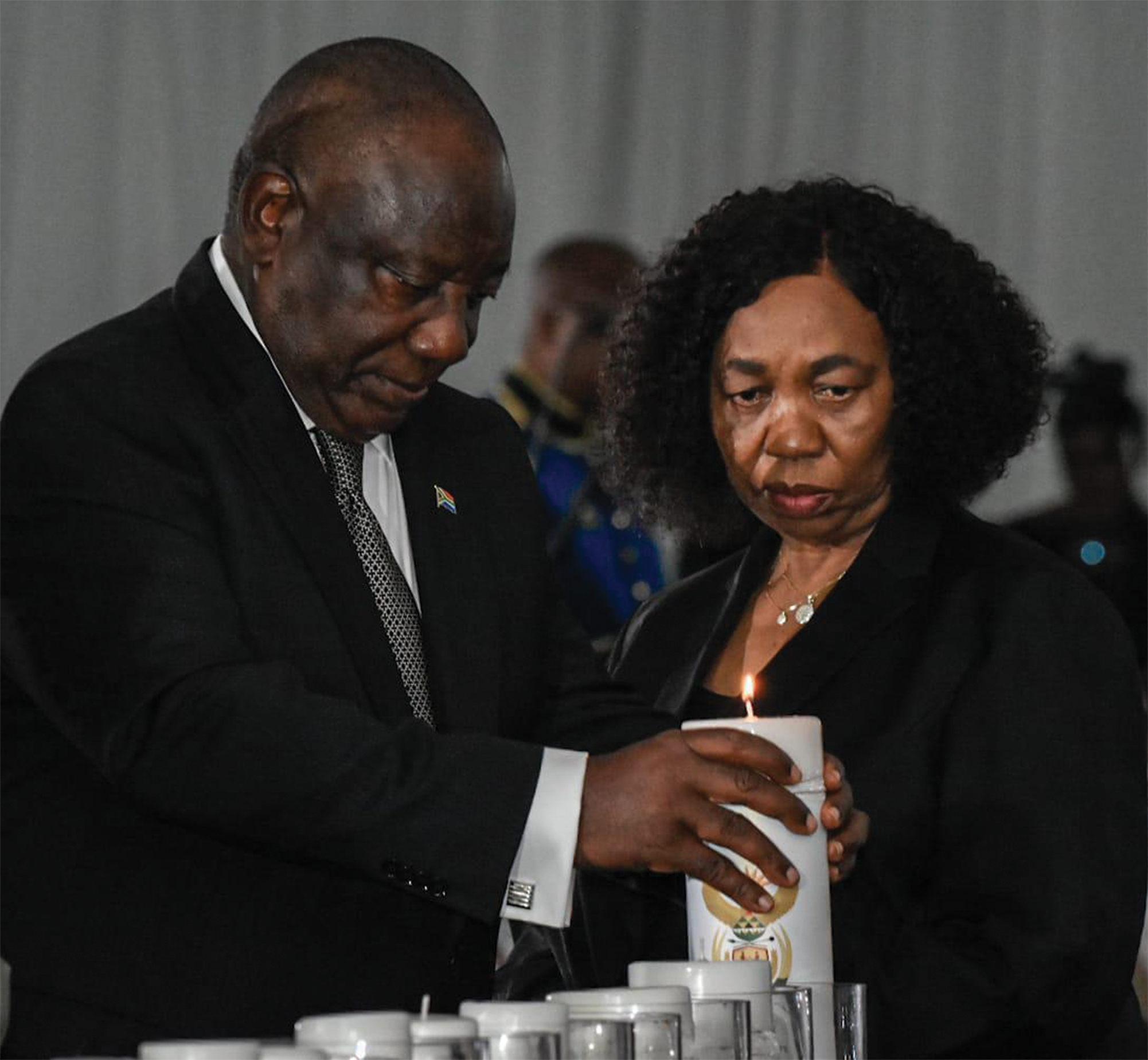
South African President Cyril Ramaphosa and his Rwandan counterpart will today set eyes on each other in Ethiopia for the first time since their public spat over the DRC conflict a fortnight ago.
This will be at the African Union peace and security council of heads of state and government in Addis Ababa today to discuss urgent measures to de-escalate the dire situation in the eastern parts of the Democratic Republic of Congo. The council’s meeting will precede the 37th African Union (AU) summit, which convenes over two days on Monday and Tuesday.
Tensions between the two leaders arose a fortnight ago after Kagame accused Ramaphosa of spreading lies. Kagame accused his SA counterpart of distorting their discussions on the ongoing conflict in the DRC. The spat followed the death of 13 SANDF soldiers during an assault on Goma, by Rwanda backed M23 rebels in eastern DRC.
Meanwhile, President Cyril Ramaphosa arrived in Ethiopia today for the assembly, whose theme is, “Educate a Africa fit for the 21st Century: Building resilient education systems for increased access to inclusive, lifelong, quality, and relevant learning in Africa”.
The council meeting on the DRC conflict is expected to begin with opening remarks by Equatorial Guinea President Teodoro Obiang Nguema Mbasogo, who is also chairperson of the peace and security council (PSC).
AU Commission chairperson Moussa Faki Mahamat is expected to make introductory remarks on the situation, followed by briefings from the DRC President Felix Tshisekedi and his Rwandan counterpart Paul Kagame.
Other leaders expected to make inputs to the discussions are Angolan President João Lorenço, who is also mediator of “the Luanda Process”. Also part of the meeting are Tanzanian President Samia Suluhu Hassan, who is chairperson of the Southern Africa Development Community (SADC) Organ on Politics, Defence and Security Cooperation; Zimbabwe President and SADC chairperson Emmerson Mnangagwa; Kenyan President and East African Community chairperson William Ruto; Ramaphosa; Uhuru Kenyatta, former president of Kenya and facilitator of the EAC-led Nairobi Process for Peace in Eastern DRC; and Antonio Guterres, UN Secretary-General.
This session is being held as a follow-up to the emergency PSC ministerial session held on January 28 following renewed escalation of the fighting and territorial expansion by the M23 rebel group.
Despite the ceasefire agreement on August 4 2024, fighting between the Congolese armed forces (FARDC) and M23 has escalated following the collapse of the Luanda Process meant to have taken place on December 15 last year.
Angola’s Lourenço had been working to facilitate face-to-face talks between Tshisekedi and Kagame and had convened a tripartite summit in Luanda in December last year.
However, the issue of M23 created complications, with Rwanda insisting that the matter be addressed, while the DRC resisted the involvement of M23 in the Luanda process.
M23 has significantly expanded its territorial control in North Kivu since December. By the end of last month, M23 had captured Goma, the provincial capital, sparking international condemnation. The news triggered violent protests in Kinshasa, with protesters attacking several embassies, including Belgium, France, Kenya, Rwanda, the US and Uganda.
The situation in Goma appears stable now, except for sporadic gunshots in the city, according to UN officials. However, M23 continues to deepen its grip on the territories it has seized.
Most notably, it is instituting its own administrative structures in those territories, marginalising the structures under the current constitutional arrangement of the DRC, according to reports. This has inevitably triggered fears of the fragmentation of the territory of the DRC.
M23 had declared a unilateral humanitarian ceasefire on February 4, but it did not hold as fighting resumed in South Kivu with M23 advancing southwards and capturing Nyabibwe, a mining town on Lake Kivu 40 miles from Bukavu, the provincial capital.
After a few days of lull, fighting has reportedly resumed in South Kivu. According to UN officials, M23 is targeting Kavumbu Airport, a major airport in the province, and Bukavu is likely to be next. The fighting in South Kivu appears to have created fears in Burundi which borders the province and has its forces deployed in eastern DRC as part of a bilateral agreement with the Congolese government.
Amani Africa Media, an independent pan-African policy research consulting think tank, says these major changes in the battlefield conditions of the conflict involving the M23 have brought about “very adverse consequences to the presence of UN and regional third-party mechanisms”.
The UN Organisation Stabilisation Mission in the DRC (MONUSCO) and the Southern African Development Community Mission in the DRC (SAMIDRC), deployed in the region since December 2023 with an offensive mandate, attempted to halt M23’s advance but were unsuccessful.
Tragically, three MONUSCO peacekeepers and 19 SAMIDRC troops (13 South Africans, three Malawians and two Tanzanians) lost their lives.
Beyond the loss of peacekeepers, the very continuation of these missions has emerged to be a major issue, according to Amani Africa.
“With the announcement of the withdrawal of troops by the troop-contributing countries of SAMIDRC, the mission exists only in name,” says Amani Africa.
“For all practical purposes, the M23’s military gains have pushed the SAMIDRC into implosion. Similarly, it remains unclear whether and how MONUSCO can pursue its current mandate under the new realities established on the ground as a result of these gains”.
Meanwhile, the UN Security Council circulated a draft resolution on the DRC among council members last week. Currently, council members are negotiating the draft, which, among other things, demands the M23 to stop further territorial expansion and withdraw from Goma and all other controlled areas.
It also called on the Rwandan Defense Forces to cease support to the M23 and withdraw from the Congolese territory. Additionally, it expresses its intention to consider additional targeted sanctions against the leadership of M23 and its external backers.
The other issue of concern for the PSC, when the heads of state and government meet today, is how to ameliorate the dire humanitarian situation in Eastern DRC, which is one of the largest humanitarian crises in the world.
About 3 000 people have been reportedly killed in this latest round of fighting. An estimated 178 000 people fled the surrounding areas, with 34 000 of them seeking refuge in already overcrowded camps for internally displaced persons within Goma.
The UN Human Rights Council, after an emergency session it held on February 7, unanimously adopted a resolution to establish ‘an independent fact-finding mission on the serious violations and abuses of human rights and serious violations of international humanitarian law’ in Eastern DRC. – Additional reporting by Amani Africa Media


